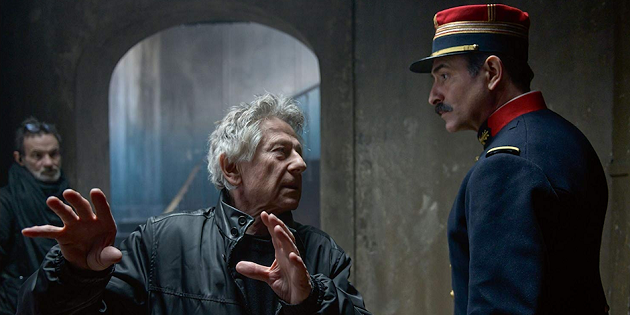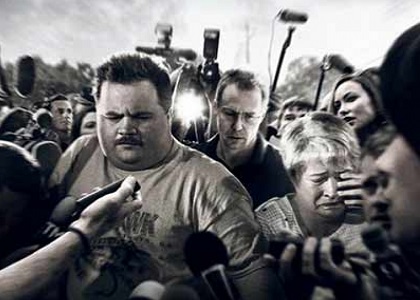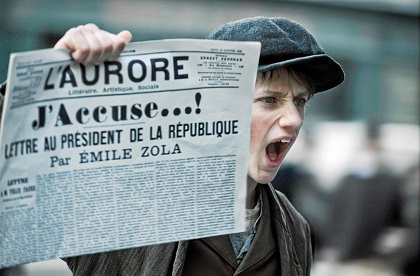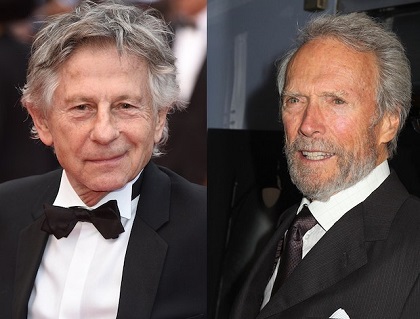A review of the films “Richard Jewell” and “An Officer and a Spy”.
 The Picquart of Polanski has a sense of justice, but also takes decisions based on his personal interests.
The Picquart of Polanski has a sense of justice, but also takes decisions based on his personal interests.
Whether we like it or not, we are captive to our prejudices and there’s no arguing about it. We are made in such a way that we need more than evidence to change our minds. As Pascal put it, “the heart has its reasons of which reason knows nothing”.
The most recent films by Clint Eastwood and Roman Polanski not only show the lucidity that can be maintained when one is in its 80s, but they also reveal the tragedy of individuals condemned by the majority, without a better guarantee of justice than the prejudices of their accusers.
The parallel system of justice established by the media – the press at the time of Dreyfus and Jewell, now replaced by social media – works in such a way that it is no good to demonstrate a person’s innocence in court. Once tarnished by accusation, that person will continue to be guilty in everyone’s minds.
Many are trying to brush aside the evident significance of these two films, which evoke Eastwood’s conservatism and Polanski’s legal problems. However, both of them provide a sober and plain case for our incapacity to overcome prejudice.
I am always amazed at the complacency with which we all get involved in the public lynching of an individual. At my stage in life, I have little to hope from the justice of this world and it is ever more evident that the strength of prejudice is such that it can’t just be argued away.
HERO OR VILLAIN?
It still surprises me how easily some people’s love can turn to hate. This can be seen in the bitterness caused when a couple separates. But it doesn’t just happen in personal relationships, it’s also in collective ones. The hero sometimes becomes a villain, as in the case of Richard Jewell. Such is the fickleness of human beings…
 The latest films by Eastwood and Polanski address the tragedy of being judged by the prejudices of the masses.
The latest films by Eastwood and Polanski address the tragedy of being judged by the prejudices of the masses.In a heroic feat, similar to that of pilot Sully landing a passenger plane on the Hudson River in 2009, a security officer at the 1996 Atlanta Olympic Games discovered a bomb that could have caused a tragedy. However, as Eastwood observes, they both went from being the object of praise to being regarded as suspects. In a public opinion that is heavily influenced by the media and the FBI, Jewell goes from saviour to terrorist.
The compassion with which Eastwood treats this solitary man with psychological problems contrasts with the way in which he is seen by everyone else. His possession of arms and inferiority complex brand him as a menace. The timid personality of a person – well portrayed by Paul Walter Hause – who cannot look another in the eyes and is excessively submissive to the police runs counter to the “man of straw” image created by the media, before they destroyed him. We see how easily public opinion could be swayed, even before the rise of social medial and “fake news”.
THE DREYFUS AFFAIR
Although the title of the film in English is “An officer and a spy”, its original French title is “J’accuse” (I accuse), after the article that writer Emile Zola published in defence of Dreyfus’s innocence.
Alfred Dreyfus was an artillery officer who was accused of spying on account of the prejudices that abounded in nineteenth and twentieth century France, during the period of the Third Republic. To tell his story, Polanski takes the perspective of Picquart, the lieutenant colonel who was appointed chief of the army’s intelligence section. At the beginning of his investigation, the character played by Jean Dujardin – who looks just the part for the period – is influenced by the anti-Semitic prejudices that sent Dreyfus to life imprisonment on Devil’s Island (French Guiana).
 In French, the movie takes the title of the article written by Emlie Zola.
In French, the movie takes the title of the article written by Emlie Zola.Those who understand Polanski’s film as a justification of the accusation of rape that led to him leaving the United States, ignore the fact that the film follows on from a continuous theme in his work. In this film, he goes back to collaborating with Robert Harris, the British novelist who adapted “The Ghost Writer” (2010) – for me, one of the best films of the last decade –. On this occasion, the director of “Rosemary’s Baby” (1969) and “Chinatown” (1974) produces something more classic than ever.
For some it will seem tedious, but I was impressed by its exactitude and austerity at a time when it’s mainly all about fireworks. It received a prize at the Mostra di Venezia, despite the opposition of the President of the jury, the Argentinian Lucrecia Martel – which, in my mind, gives it added value.
While Eastwood is the subject of polemic due to his reactionary ideas, Polanski is targeted because of his immoral behaviour when he was younger. They are both now old “politically incorrect” men in a society that has little tolerance for what departs from the standard discourse on either side of its polarized world.
Eastwood’s nationalist conservatism is as problematic as the insane perversion of Polanski’s characters. At bottom, I think that they are both fascinated by the mystery of evil – something that people prefer not to get into too much in this age of humanitarian idealism, whether Right or Left wing.
CAPTIVE TO OUR PREJUDICES
It is worth remembering that a petition was made in 1985 to erect a statue of Dreyfus in the courtyard of the Military School in Paris. The petition was rejected by the Army, which relegated it to a corner of the Tuileries garden. Why was this? Most likely, a mere question of pride, the same as the pride that motivates Picquart, as we see in his final clash with Dreyfus as to the reasons for which he has defended his innocence. That is the reason why we maintain our prejudices, to be “true to ourselves”, come what may.
 Eastwood is controversial for its strong conservatism, Polanski for the immoral behaviours of his youth.
Eastwood is controversial for its strong conservatism, Polanski for the immoral behaviours of his youth.Polanski’s Picquart is an ambiguous figure, as we all are. He has a sense of justice, but he acts out of personal interest, as we all do. In fact, Dreyfus is no more than an excuse, as are the majority of things that we argue about on a daily basis. We realise that, no matter the sophistication of the intellectual argument used, it is to no avail. People do not change their minds because of what you say. It is a question of pride. That is the locus of personal identity and self-esteem.
The Gospel faces a greater barrier than all the intellectual objections that the non-believer may have. It is a problem of the heart. And this isn’t a purely emotional concept, but the centre of our being, “for it is the wellspring of life” (Proverbs 4:23), “deceitful above all things” (Jeremiah 17:9).
We need a “new heart” (Ezequiel 36:26). Therein lies the problem. If the heart does not change, we will remain captive to our prejudices.

Las opiniones vertidas por nuestros colaboradores se realizan a nivel personal, pudiendo coincidir o no con la postura de la dirección de Protestante Digital.
Si quieres comentar o